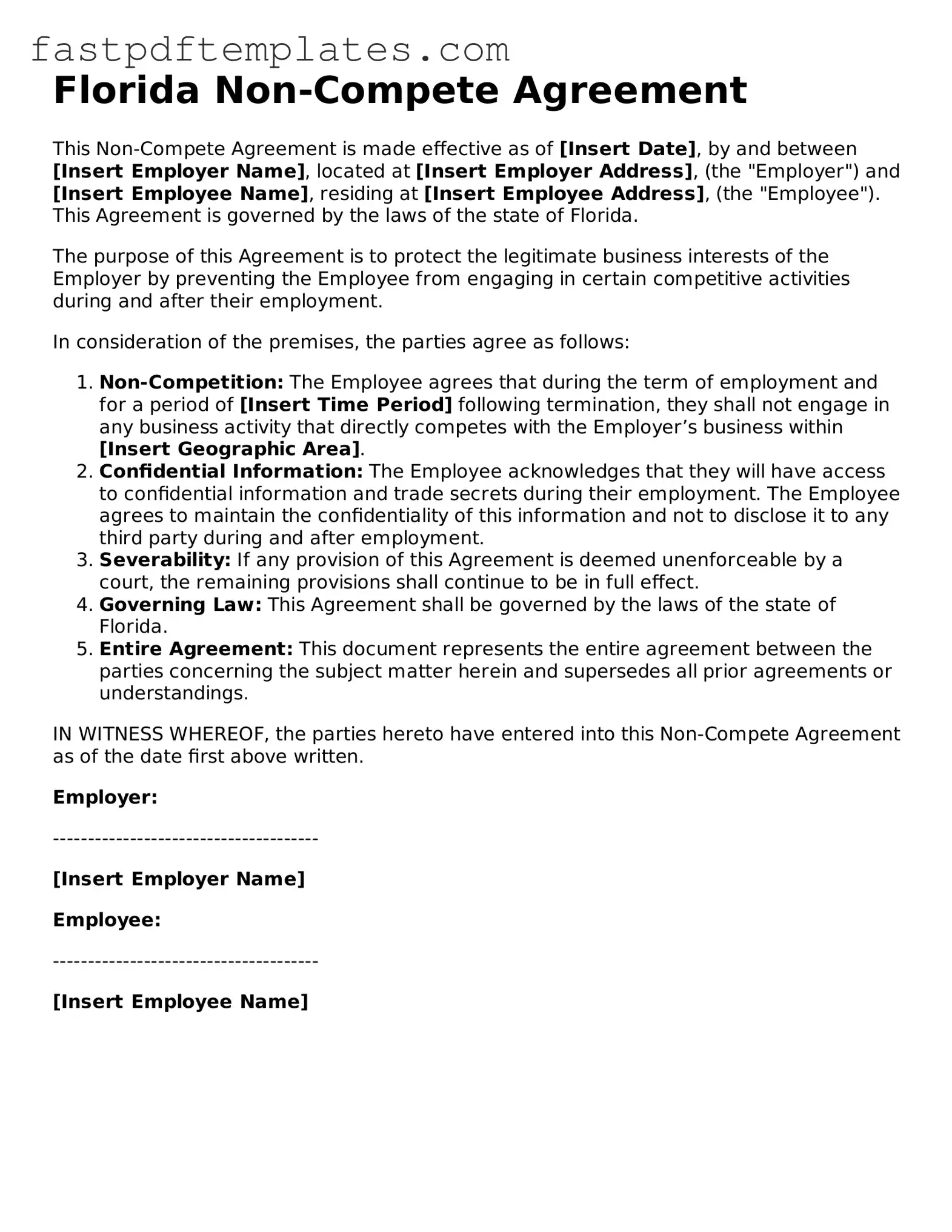Attorney-Approved Florida Non-compete Agreement Document
A Florida Non-compete Agreement is a legal document that restricts an employee's ability to work for competitors after leaving a job. This form helps protect a business's interests by preventing former employees from sharing sensitive information or taking clients to a rival company. Understanding the terms and implications of this agreement is essential for both employers and employees in Florida.
Access Document

Attorney-Approved Florida Non-compete Agreement Document
Access Document
Your form still needs completion
Complete your Non-compete Agreement online and download the final PDF.
Access Document
or
Click for PDF Form
